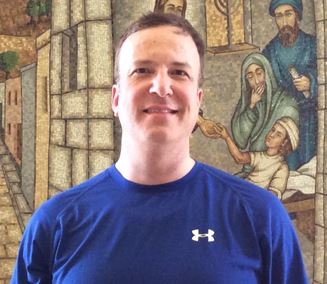
This Sunday, we celebrate the Feast of Corpus Christi, the mystery of the Body and Blood of Christ present in the Holy Eucharist. We read this Sunday, from the Gospel of Luke, how Jesus feeds five thousand men, not including women and children, with five loaves of bread and two fish. The Feast of the Holy Eucharist invites us to reflect on our ability to see the world through both the vertical and horizontal dimensions of our faith.
On the one hand, the vertical dimensions of faith are associated with one’s direct and personal relationship with God. This involves participating in the sacraments, Eucharistic adoration, devotions such as the Rosary, the Stations of the Cross; honoring the saints and cultivating private prayer. On the other hand, the horizontal dimensions of faith commonly refer to how we demonstrate our faith in Christ by serving and loving others. This includes a special concern for the poor and suffering. These horizontal dimensions of faith can also be understood by focusing on the seven principles of Catholic social teachingas outlined by the United States Conference of Catholic Bishops. These teachings are: Life and Dignity of the Human Person; Solidarity; Care for God’s Creation; Call to Family, Community and Participation; Option for the Poor and Vulnerable; Rights and Responsibilities and Dignity of Work and Rights of Workers.
Neither the vertical dimensionsnor the horizontal dimensionsare sufficient by themselves and each requires the other. These two dimensions of faith, vertical and horizontal, can and often are viewed from opposite ends of the spectrum. It is sometimes assumed that “conservative”Catholics prioritize the liturgy and the vertical dimension of faith, while “liberal”Catholics prioritize social justice and the horizontal dimension of faith. The polarizing of these two dimensions of faith is not only harmful in establishing harmony within ourselves, but divisive and harmful in establishing harmony as a community of faith.
In the Constitution on the Sacred Liturgy, the Fathers of the Second Vatican Council deemed the liturgy to be “the first and necessary source from which believers can imbibe the true Christian spirit. Although liturgical worship and social justice exist in a mutual relationship and are incomplete without each other, primacy belongs to the Eucharist. The Eucharist demands and provides substance to the work of social justice.”In a very similar vein, the Council Fathers, in the Dogmatic Constitution on the Church, also describe the Eucharist as “the source and culmination of all Christian life.”
What these church teachings translate to is that what happens during the Mass must always be seen as being related to and affecting how we as Catholics live and serve those around us in everyday life. The sacred liturgy is meant to serve as the foundation of the Church’s entire mission. Social justice does not necessarily commit an individual to the Eucharist.By its very nature, however, “the Eucharist commits us to the poor.”The proper order is divine worship which then leads us to justice. Through our participation in the Eucharist, we have an intimate encounter with Christ, as well as develop an authentic Christian spirit that includes a loving concern for all who are oppressed and ostracized members of society. Everything we as Catholic Christians do to serve the poor and the least of these can never be devoid of our relationship with Christ in the Eucharist. If our relationship is absent from Christ, then our efforts fall short of their true potential. Both the person who identifies his or her Catholicity solely with daily attendance at Mass and the person who claims his or her daily work at the soup kitchen is the essential feature of his or her Catholicity are both misguided in their estimation.
Neither Sunday Mass nor caring for the needy is optional for those who claim to live as Catholic Christians in the world. U.S. Conference of Catholic Bishops highlights the social dimensions of the Eucharist, citing the late Pope John Paul II’s declaration that the Eucharist fosters “a social love in which we put the common good ahead of private food, take up the cause of the community, the parish, the universal church, and extend our charity to the whole world.” The bread of life is the Eucharist and more than the Eucharist. On the Feast of Corpus Christi, let us reflect as a community of faith on these questions about the mystery of the Eucharist and our commitment to Jesus and one another:
Does the Eucharist lead me to truly feel and believe that we are all brothers and sisters in Christ? Does the Eucharist increase my capacity to rejoice with those who are rejoicing and cry with those who are crying?
Does the Eucharist urge me to go out to the poor, the sick, the marginalized? Does the Eucharist help me to recognize in other people the face of Jesus? We all participate in the Mass to experience the love of Jesus and share, through the Eucharist, in Christ’s passion, death, and resurrection, but does our participation at Mass lead us to love, as Jesus did, those brothers and sisters who are the most difficult to love?
When have you been bread in someone else’s life? When and where have you fed and nourished them? When have you sustained them? When have you strengthened them? What kind of bread will you eat this week? What kind of bread will you be for another this week?

